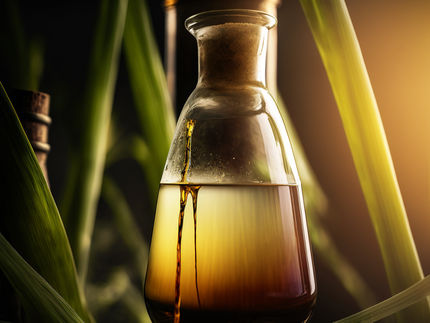Gasoline additives from sugar
fuel additives such as isooctane have so far been produced from mineral oil. Commissioned by the French-German company Global Bioenergies, the Fraunhofer Center for Chemical-Biotechnological Processes CBP in Leuna will soon be producing biobased additives for gasoline. The source is bio-isobutene, which is obtained biotechnically from sugar.
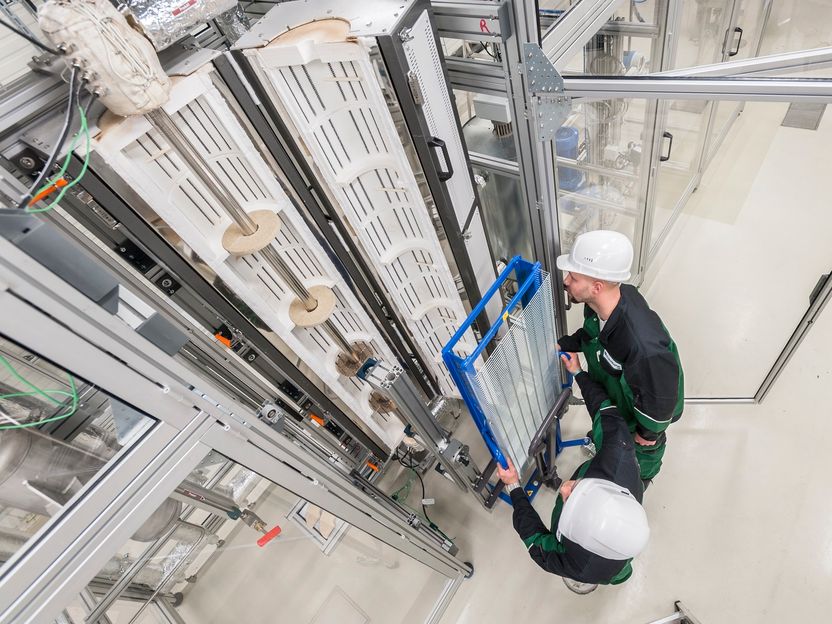
Pilot plants for the chemical conversion and processing of fuels and fuel additives: High-pressure flow tube reactor.
Fraunhofer CBP
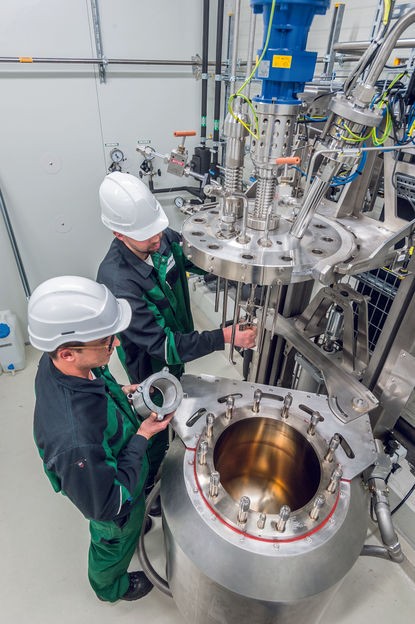
High-pressure stirred tank reactor at Fraunhofer CBP.
Fraunhofer CBP
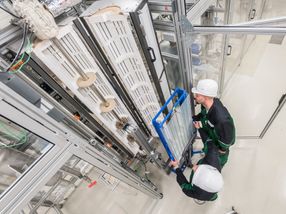
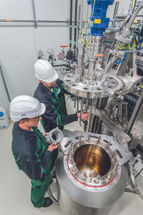
In order to prevent the air-fuel mixture in the gasoline engine from self-igniting prematurely, additives are included with the fuel to increase the knock resistance. In a project funded by the German Federal Ministry of Education and Research (BMBF) the French-German company Global Bioenergies now aims to produce two such additives, isooctane and ETBE (ethyl-tert-butyl ether), for the first time from purely renewable ressources. The Fraunhofer Center for Chemical-Biotechnological Processes CBP in Leuna will develop and validate the processes for Global Bioenergies using the equipment available at CBP through to industrial scale.
The raw material for the biobased fuel additives is biobased isobutene, a hydrocarbon, from which plastics and elastomers can also be synthesized. From autumn 2016 it will be produced in a pre-industrial pilot plant, which Global Bioenergies have installed at Fraunhofer CBP over the past few months. The plant is the first worldwide to produce isobutene in a purely biotechnical process from sugars, which can be obtained from different renewable sources such as agricultural biomass and forestry residues. In a 5.000-liter fermenter bacteria convert such sugar into the gaseous hydrocarbon.
Chemical conversion of isobutene to isooctane
In fact, isooctane has been synthesized from isobutene for years in the chemical industry. “The challenge is now to find out how the established chemical processes can be transferred to the biobased source material,” says Dr. Daniela Pufky-Heinrich, who is heading the project at Fraunhofer CBP. “Substances could enter the product, for example via the plant-based raw material and the biotechnical production process; these substances could act as a catalyst poison or interfere with the combustion process in the engine,” the chemist points out. That is why it is important to design all the separate steps in the process with a view to a cost-effective overall process, from the sugar by way of the biobased isobutene through to the fuel additive. “This means that we have to investigate every single parameter and, if necessary, modify each one, for example our purification strategy for the intermediates and the end product,” says Pufky-Heinrich.
Then it is a question of scaling up the optimized overall process from the lab via the technical testing stage to the pilot scale. “Parallel to this, we will supply sample quantities of approx. 100 kilograms for application testing in the automotive and fuel industry,” says Pufky-Heinrich.
The Fraunhofer researchers also intend to examine various procedures for the chemical production of ETBE, which is synthesized from biobased isobutene and ethanol. This gasoline additive is first produced from batches of the biotechnological isobutene production from the Global Bioenergies pilot plant in Pomacle, France.
The hydrothermal reactor units available in the Chemical Process Group at Fraunhofer CBP will be used for the chemical conversion; the thermal treatment units are used for the subsequent purification.
Most read news
Topics
Organizations
Other news from the department science

Get the life science industry in your inbox
By submitting this form you agree that LUMITOS AG will send you the newsletter(s) selected above by email. Your data will not be passed on to third parties. Your data will be stored and processed in accordance with our data protection regulations. LUMITOS may contact you by email for the purpose of advertising or market and opinion surveys. You can revoke your consent at any time without giving reasons to LUMITOS AG, Ernst-Augustin-Str. 2, 12489 Berlin, Germany or by e-mail at revoke@lumitos.com with effect for the future. In addition, each email contains a link to unsubscribe from the corresponding newsletter.
